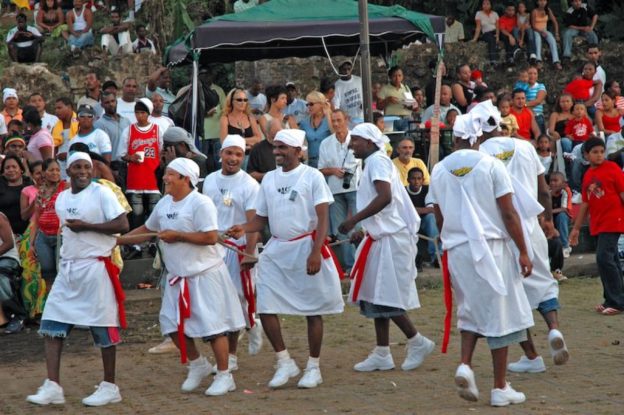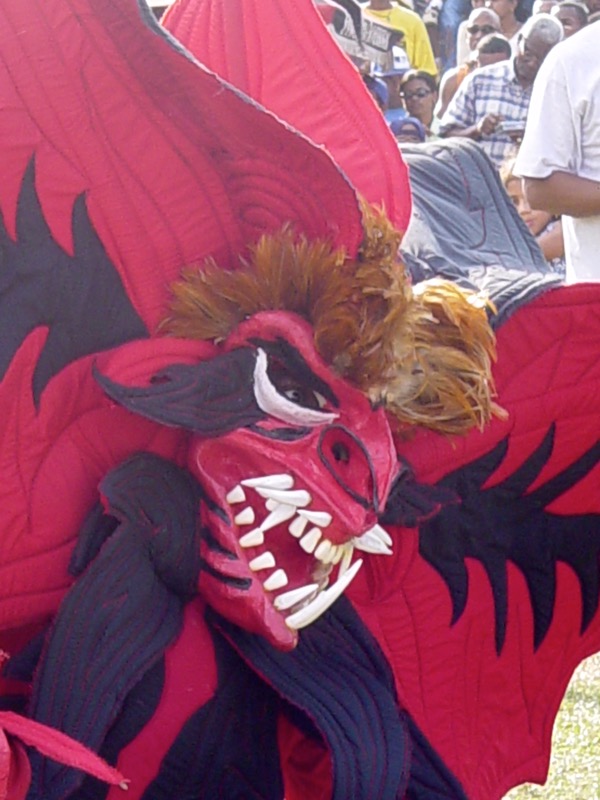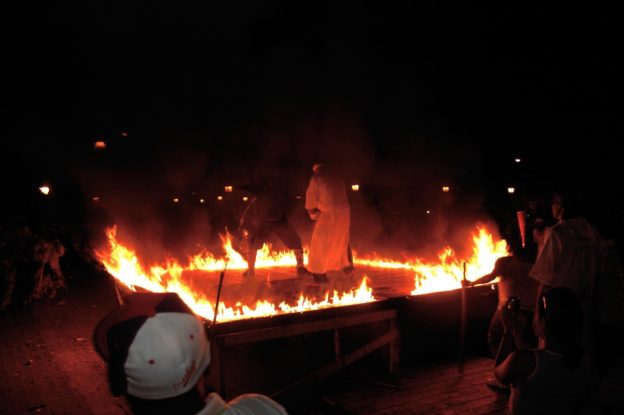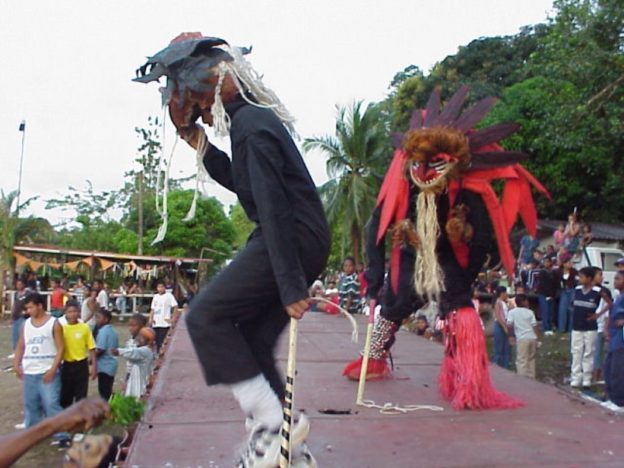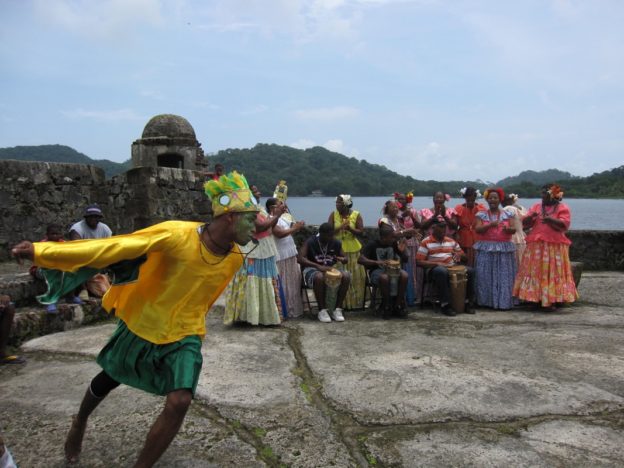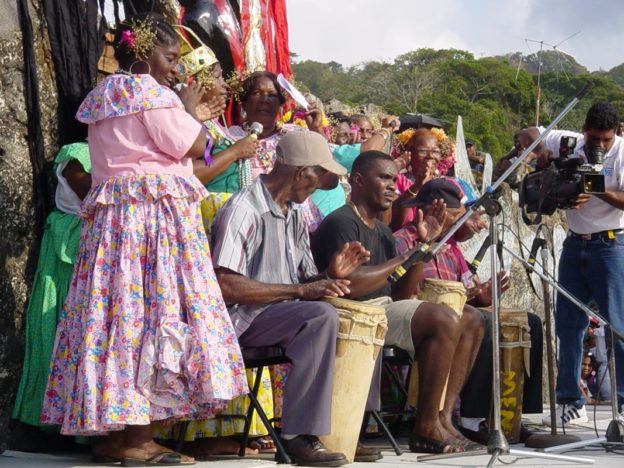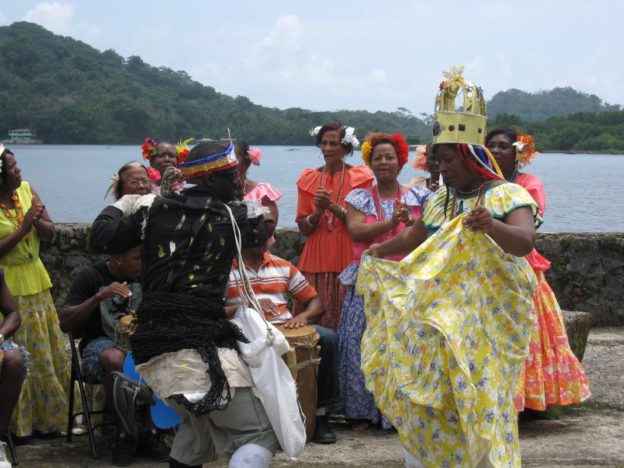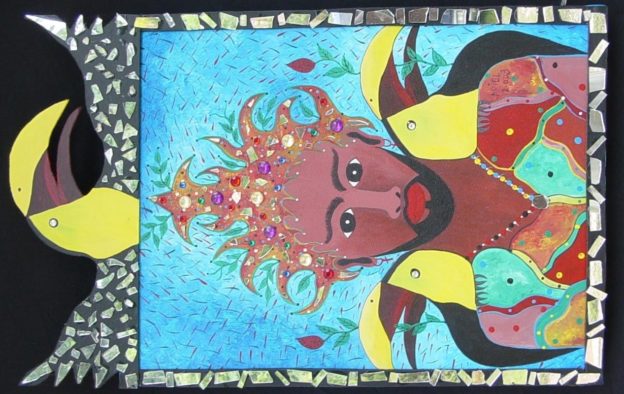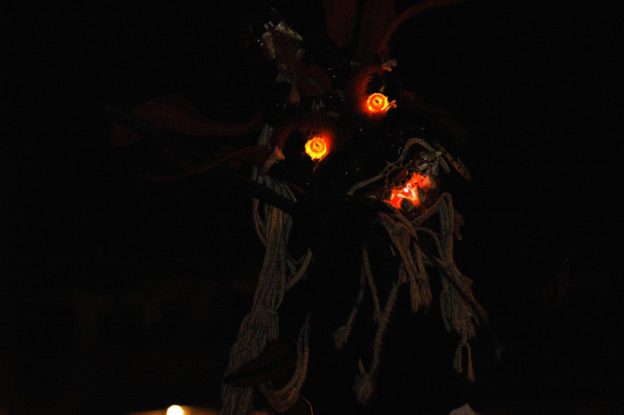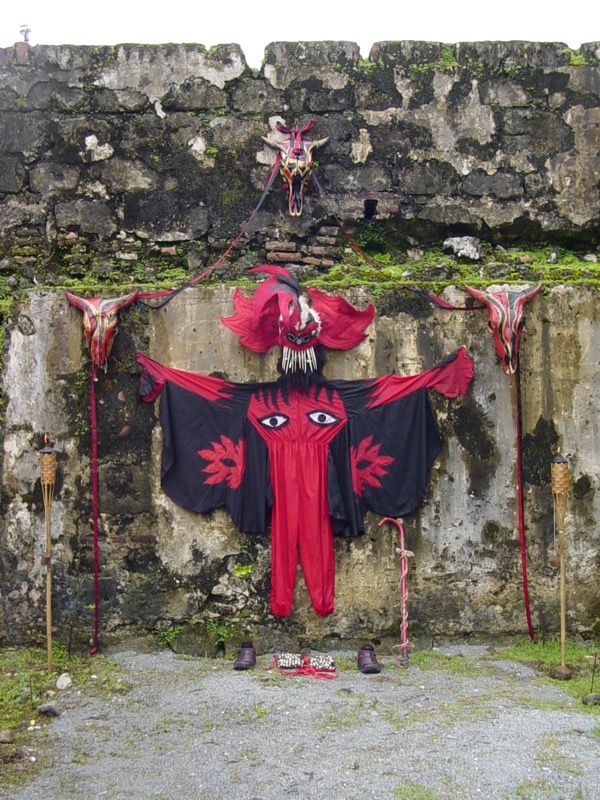In this excerpt, Molinar shares his experience of being symbolically blessed or “baptized” as the Major Devil character. Just as the “pujido” or “grunt” helps to amplify internal energy, the process of being symbolically baptized helps to abate energy.
In this excerpt, Molinar discusses the practice of symbolically selling the devil at the conclusion of the Congo game and his interpretation of what the devil character represents within the Congo tradition.
In this excerpt, Molinar discusses a few of the changes that he has witnessed in the devil character’s embodiment within the tradition that displease him and responds to Arturo Lindsay’s question regarding the escalating violence he has witnessed with the way some younger practitioners wield their whips.
In this excerpt, Molinar discusses the current existence of three people who play the role of Major Devil in the Congo tradition even though the official narrative about the tradition only signifies one Major Devil character playing at any one time.
In this excerpt, Esquina discusses the changes she has seen in the Congo tradition over the course of her lifetime. Specifically, she talks about the role that Pajarito, the Little Bird, once played in the Congo game, and the ways in which the character and the game have shifted. The construction of the road signaled the end of the game as one between neighboring Congo Kingdoms who competed to capture each others’ palacio/palenque. The contemporary game is between the discrete Congo communities and the character of the devil.
In this excerpt, Esquina discusses the meaning and significance of the Congo tradition to Portobelo.
In this excerpt, Esquina discusses the changes she has seen in the Congo tradition over the course of her lifetime. Specifically, she talks about the ways in which the king’s role has diminished since her father once played it.
In this excerpt, Esquina recounts watching her father, Vicente Esquina, get dressed as the Congo King and accompanying him to the palenque/palacio to play Congo. Memories of her father’s participation as king mark some of Esquina’s earliest recollections of the tradition.
In this short excerpt, Molinar laments some of the escalating violence that he witnessed in the early 21st century.
In this excerpt, Jiménez discusses how he began to play the devil character in the Congo tradition.
